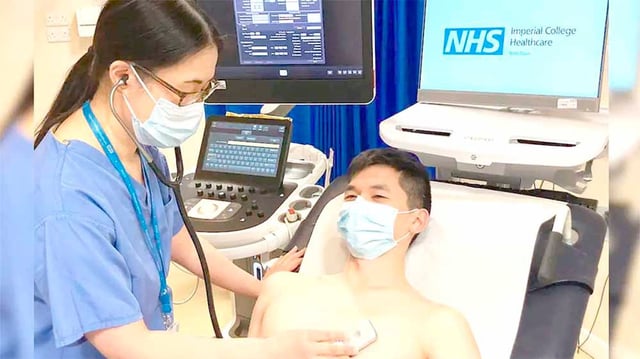Overview
- A real‑world cluster trial across 96 GP surgeries using the device versus 109 comparators in North West London examined 12,725 symptomatic patients, with results presented at the ESC Congress in Madrid and published in BMJ Open.
- Use of the AI-enabled stethoscope was associated with 2.33× more heart failure diagnoses, 3.45× more atrial fibrillation, and 1.92× more heart valve disease within 12 months compared with usual care.
- The palm-sized device pairs a rapid ECG with heart-sound recording, sends data to cloud-based algorithms, and returns a risk flag to a clinician’s smartphone within seconds.
- Two-thirds of heart failure flags were not confirmed on BNP blood tests or cardiac imaging, and about 70% of GP practices stopped or infrequently used the device after 12 months.
- Researchers plan targeted rollouts to GP practices in Wales, south London and Sussex with pathways directing positive screens to confirmatory BNP tests and scans; the study was funded by NIHR, the British Heart Foundation and Imperial Health Charity, using hardware from Eko Health.



